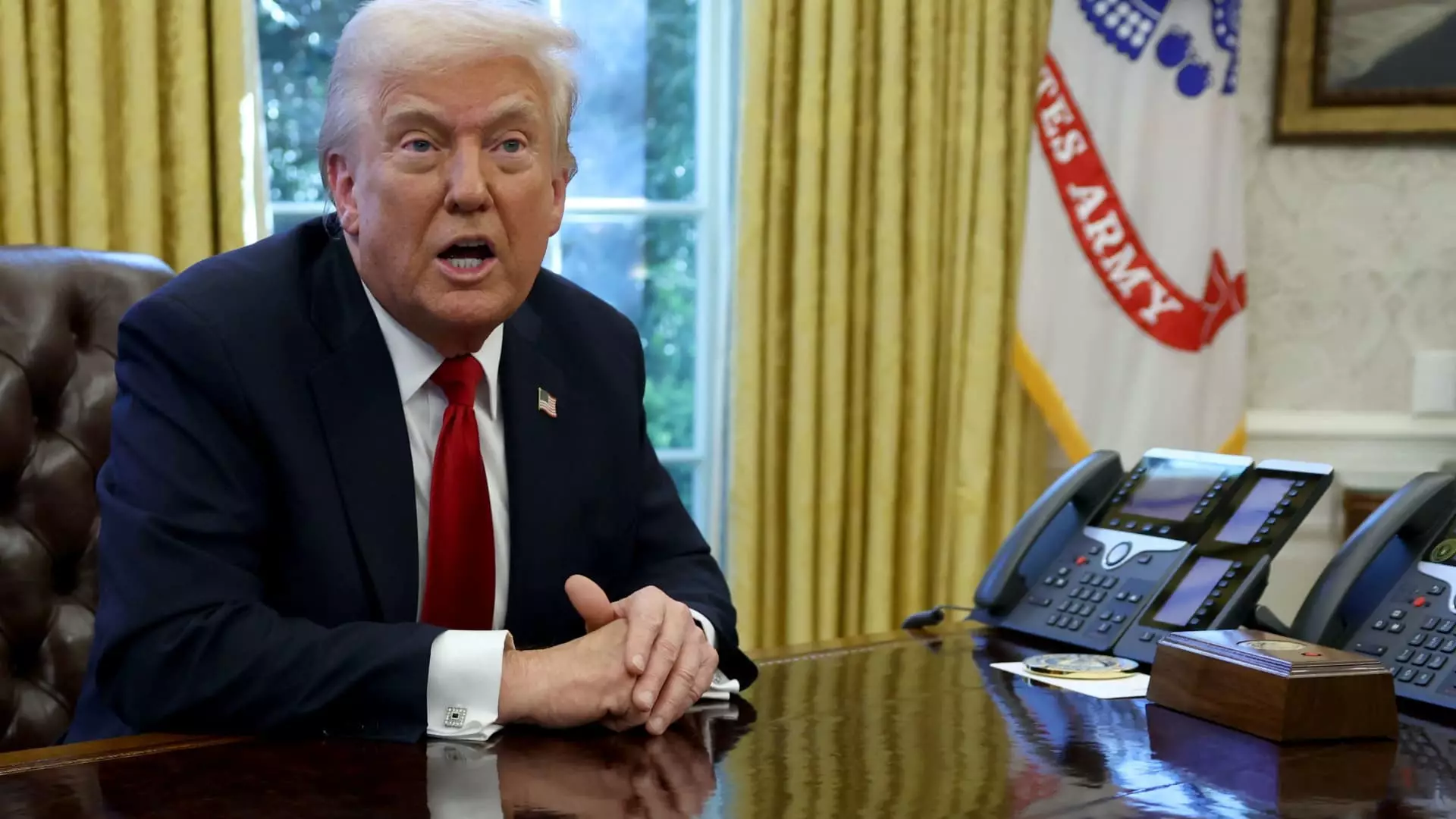The political landscape surrounding U.S. trade has been tumultuous, particularly under the Trump administration, which has seen drastic measures that have sent shockwaves through various industries. The recent proclamation by President Trump to impose a staggering 25% tariff on all vehicles not made in America has stirred the pot yet again. This move raises questions about its long-term viability and benefits. While the ostensible goal is to bolster domestic car manufacturers, the repercussions of such tariffs could very well unravel a fragile automotive market, particularly for innovators like Tesla.
The Musk Connection: An Uneasy Alliance
At the center of this trade maneuver is none other than Elon Musk, CEO of Tesla, who acts as a senior advisor to Trump. Musk’s intricate relationship with the administration complicates the narrative even further. Despite his pivotal role in the reshaping of modern transportation with Tesla’s electric vehicles, Musk’s lack of public commentary on these tariffs sends a mixed message. Is this silence due to a conflict of interest, as suggested by Trump? Or could it be a strategic choice to remain apolitical amidst a brewing trade storm? Musk has historically kept his distance from political theatrics, but with his significant investments and advisory position, one would expect him to take a firm stance—especially when the future of his companies hangs in the balance.
The Economic Ramifications: An Uncertain Future
Trump’s assertion that the tariffs might yield a “net neutral” outcome for Tesla spotlights a larger issue—the complexities of globalization intertwined with local production. While the intent is to incentivize domestic manufacturing, the reality is that the U.S. automotive industry, including Tesla, relies heavily on a global supply chain. Musk’s recent admissions regarding the difficulties of sourcing essential parts domestically illustrate this very dependency. Simply imposing tariffs without a robust, actionable plan to address supply chain issues may backfire—stifling innovation, curtailing job creation, and ultimately driving prices up for consumers. With competition burgeoning, especially from international players like BYD in China, Tesla could find itself squeezed from both ends by rising production costs and increased competition.
Trump’s Promised Support: A Fragile Pact?
The optics surrounding Trump’s recent endorsement of Tesla—transforming the South Lawn of the White House into a Tesla showroom—seem to mark a public affirmation of allegiance to Musk and his electric vehicles. Terms of this relationship, however, are fraught with uncertainty. When Trump declared that he would purchase a Tesla, it came across as a political maneuver rather than genuine support for sustainable innovation. This façade raises the question: can such a fragile pact withstand the tumult of policy changes and economic pressures? As Musk’s companies face the prospect of preemptive price hikes due to tariffs, the electric vehicle industry has to tread carefully.
A Turbulent Market: Industry Responses and Investor Skepticism
Within hours of Trump’s tariff announcement, shares of domestic automakers—including Ford, General Motors, and Rivian—experienced a noticeable decline. This market reaction signals investor skepticism regarding how these tariffs will play out and whether American manufacturers can truly benefit from the protectionist strategies being employed. With the industry positioning itself for a paradigm shift toward electric vehicles, the last thing it needs is added volatility stemming from trade policies. The sudden introduction of tariffs could severely hamper not just operational costs, but also the public’s adoption of eco-friendly technologies by inflating vehicle prices.
The Road Ahead: Navigating Uncharted Territory
In this high-stakes game of politics and commerce, the automotive sector finds itself at a crossroads. As manufacturers like Tesla strive to innovate, the backdrop of trade tensions and tariff threats looms large. If sustained, the tariffs could inadvertently stifle the very growth the administration seeks to encourage. Rather than simply pitching tariffs as a solution, there needs to be a concerted effort to foster domestic innovation through investment in infrastructure, skilled labor, and research. The future of American manufacturing, particularly in the rapidly evolving landscape of electric vehicles, depends not just on protective measures but on cultivating an ecosystem that encourages entrepreneurship and adaptability. The challenge will be to balance these immediate trade concerns with the long-term goal of a sustainable, innovative car industry that supports both the economy and the environment.

